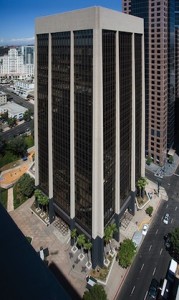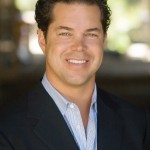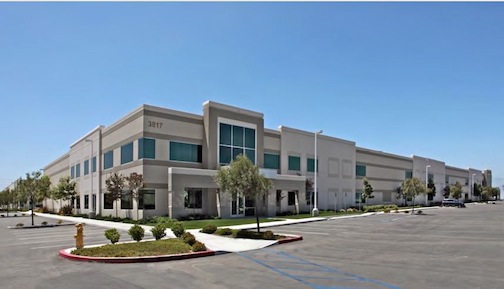Daily Business Report — April 12, 2013
Congressman Issa Sells Oceanside
Industrial Park for $19.8 Million
Republican Congressman Darrell Issa has sold a 230,000-square-foot, multi-tenant industrial park in Oceanside for $19.8 million to SR Commercial, a privately held commercial real estate investment company. The three-building industrial park, called La Pacifica, was 75 percent occupied with eight tenants at the time of purchase. During escrow, SR Commercial secured a new, 17,000-square-foot lease for a manufacturing and distribution company that plans use the space as its second location in California and 10th location in the U.S. The acquisition is the largest industrial transaction in north San Diego in 2013 based on total square footage and consideration, according to Adam Robinson of SR Commercial.
“To compete for this property, the seller was seeking a buyer who could close all-cash within 45 days, and we were able to do that,” said Robinson. Cushman & Wakefield represented SR Commercial in the sale. Issa, who represents the 49th Congressional District, was represented by Cassidy Turley. La Pacifica is located at 3801, 3809 and 3817 Ocean Ranch Blvd.
Mayor Wants City Attorney
To Abandon Pension Lawsuit
City News Service — Mayor Bob Filner plans to publicly urge City Attorney Jan Goldsmith today to drop a lawsuit against the San Diego City Employees Retirement System over differing interpretations of required pension contributions. Filner said that because the city supplies legal defense for SDCERS, the city essentially was suing itself. He said the pension system’s legal expenses have hit $3.2 million over three years. The mayor and Herb Morgan, president of the SDCERS Board of Administration, have scheduled a mid-day news conference at City Hall to make the request. A section of the City Charter requires that the city and its workers pay a substantially equal contribution to the retirement system. The city’s pension deficit as of last June 30 was estimated at almost $2.3 billion.
Dumanis to Run for D.A. Again;
May Face Lawyer Challenger
Bonnie Dumanis confirmed Thursday that she plans to seek a fourth term as San Diego County’s top prosecutor, while a veteran lawyer filed papers that will allow him to explore whether to become her first challenger. A Dumanis campaign spokeswoman sent City News Service a statement that announced the district attorney’s plans. “I’m very proud of what we’ve accomplished in the D.A.’s office during my tenure, including maintaining one of the highest conviction rates in the state of California,” said Dumanis, who was first elected in 2002.
The challenge could come from trial lawyer Robert Brewer, who is currently in private practice. He said he filed the necessary paperwork to look into whether to mount a challenge. Brewer, 66, used to be a state and federal prosecutor and was a decorated Army paratrooper in the Vietnam War.
“San Diego County residents deserve a district attorney who will effectively prosecute criminals, put ethics and fairness ahead of politics in the justice system, and be fully committed to the office of district attorney,” Brewer said. Brewer is a Del Mar resident. He is married to U.S. District Judge Irma Gonzalez.
Cal State Chancellor to Visit SDSU
California State University Chancellor Timothy P. White will visit the San Diego State University campus April 24 and 25. White will tour the campus, meet with university representatives and host an open forum for the public. The forum will be April 24 from 3 to 4 p.m. in the Athletics Auditorium in the Fowler Athletics Center. White, 63, succeeded Chancellor Charles B. Reed who retired following a 14-year tenure. Prior to taking the position at the CSU, White was the eighth chancellor of UC Riverside, and led the growth of the campus to almost 21,000 students, a record for the campus that opened in 1954. White holds a Ph.D. from UC Berkeley. He spent two years as a post-doctoral scholar in physiology at the University of Michigan before starting his academic career at Ann Arbor in 1978.
Clock is Ticking on Big City Leases
By Lisa Halverstadt | Voice of San Diego
It’s been more than six months since the city picked a firm to handle its real estate negotiations. That selection sat in limbo, waiting for mayoral approval, until it was abruptly rejected this week and Mayor Bob Filner announced he’d gone in another direction.
Jason Hughes previously negotiated the city’s downtown leases and offered months ago to do the same job again for free. His offer was denied at the time — but on Wednesday, Filner announced he’d do it after all.
The long delay in approving someone to fill the role has created a huge time crunch: Hughes must now address three of the city’s biggest downtown leases, including one that expires at the end of next month — a project that would typically be tackled months or even years in advance. Hughes will have 50 days.

The property at 600 B St. houses the city water department and others. The citys lease there ends May 31 and city officials haven’t decided whether a move will happen.
The city’s leases at nearby Civic Center Plaza and Executive Complex are also set to expire by mid-2014.
At a November City Council committee meeting, the city’s real estate assets director said the plan was to keep the majority of staffers downtown but reduce the city’s rent budget by at least $2 million.
Director Jim Barwick didn’t share his plans for the 600 B St. lease but emphasized the need to be strategic and prepare for moving costs.
“It’s fairly costly to move a city department because the furniture is non-standardized so people either have to acquire new furniture or change things, work or move furniture that they have,” Barwick said at the Nov. 28 meeting. “There’s downtime in the workforce because it takes time to move.” That’s why cities typically begin negotiating leases at least a year before an agreement is set to expire, real estate brokers said.
Real-estate broker Steve Martini said most leases similar to the soon-to-be-expired one at 600 B St. are handled 18 to 24 months ahead.

That time provides leverage. The city can find a deal with a new landlord that can be used to squeeze better terms out of its current one or comfortably move on if that doesn’t work out.
And if the city opts to move workers from the downtown office, it will typically spend months preparing, said local real estate analyst Gary London.
“It doesn’t happen in a month,” he said. “That’s a process that takes at best three to six months to transition, so I don’t see them moving no matter what’s happening in the lease.”
More than two years ago, city officials considered a nearly $300 million plan to build a new City Hall to replace the city’s current dilapidated digs.
Hughes was among the critics. He argued the city could save cash by remodeling the City Hall building and negotiating better deals on its downtown leases. The city’s plans ultimately crumbled.
Last year, the city requested bids from brokers to renegotiate its leases, including the three downtown buildings, or help them relocate at a lower cost.
Hughes, president of Hughes Marino, said he’d be willing to do that with no pay from the city but city staffers ultimately endorsed another firm during a formal request for proposal process.
Last September, the city’s purchasing and contracting department informed real estate firm Cassidy Turley that staffers wanted the company to handle its lease negotiations.
Dan Broderick, the firm’s local president, met with council members and communicated with city staffers in the weeks leading up to Filner’s swearing-in but the new mayor never signed off on the deal.
In early February, Broderick said he sat next to the mayor at a real-estate industry breakfast. Broderick brought up his concerns about the city’s lease at 600 B St., which expires at the end of May.
It’s important to get moving on that, Broderick told the mayor.
Filner said he was aware the lease was coming up and later agreed to a meeting with Broderick and others at Cassidy Turley, the real estate broker said. It never happened.
On Tuesday, real-estate firms that placed bids with the city received notices it had rejected all of the proposals. The letter cited an exemption that allows the city to “reject all proposals when to do so is in the best interest of the city.”
The mayor’s office announced Hughes would serve as a special assistant to the mayor the next day.
“Jason’s extensive knowledge and background in commercial real estate dealings will provide the city with the insights of a true expert,” Filner said in a press release. “His experience downtown is unparalleled and will help yield positive results for San Diego as we determine how best to continue our operations.”
Broderick said his firm is weighing a challenge to the mayor’s decision.
Multiple real-estate brokers declined to speak on the record about the Hughes hire but suspected the mayor’s change of plans was politically motivated. After all, they said, city staffers picked Cassidy Turley to represent the city in a formal process and then Filner allowed someone else to skip to the front of the line.
Hughes recently held a debt-retirement fundraiser for the mayor.
A spokeswoman for Filner said the mayor picked Hughes only because he’s willing to work for free. Even the 4 percent commission the city’s real-estate representative would normally collect will go to the city, she said.




